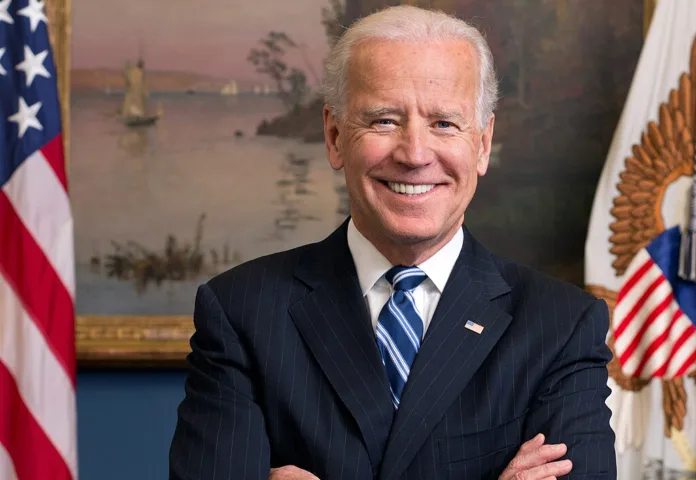US intelligence remains uncertain about the timing and nature of the expected attacks from Iran and Hezbollah, while the Biden administration intensifies diplomatic and defensive preparations
In a tense update from the White House, President Joe Biden and Vice President Kamala Harris were briefed on a potentially imminent dual assault on Israel by Iran and Hezbollah. Senior US officials have reported that US intelligence indicates two separate waves of attacks may be planned, but details about who will strike first and the nature of these attacks remain unclear.
The announcement came after a series of high-profile assassinations that have heightened regional tensions. The recent killing of senior Hezbollah commander Fuad Shukr and Hamas leader Ismail Haniyeh in Beirut and Tehran, respectively, has fueled speculation about retaliatory actions. While US intelligence suggests that both Iran and Hezbollah are preparing responses, specifics about the timing and type of attacks are still under assessment.
Embed from Getty ImagesDuring a Situation Room meeting, Biden and Harris were informed that the Iranian and Hezbollah responses are currently “in the planning process.” This uncertainty has led to significant diplomatic and military efforts by the Biden administration to prevent further escalation. Secretary of State Antony Blinken, in a conversation with G7 counterparts, indicated that an attack could occur within 24-48 hours. However, the precise details of these potential attacks remain ambiguous.
In addition to the diplomatic efforts, the Pentagon is bracing for possible attacks on US forces in the region. Following a rocket attack by pro-Iranian militias on the Ain al-Assad Air Base in Iraq, which severely injured several American soldiers, there is an increased expectation of further assaults on US military installations. The rising tension has led to a more aggressive posture by these militias, who feel emboldened by the current situation.
Amid these developments, the White House is also working to reduce regional tensions and advance a ceasefire agreement. Blinken has engaged with Qatari Prime Minister Mohammed bin Abdul Rahman Al-Thani to urge Iran and Hezbollah to avoid escalation. The Biden administration is prioritizing diplomatic efforts to secure a ceasefire and negotiate the release of hostages in Gaza, with Qatar playing a crucial role in these negotiations.
US officials have conveyed a clear message to Iran: the US is prepared to defend Israel against any attack. Despite the administration’s efforts to prevent conflict, the situation remains volatile. Biden has directed his team to coordinate closely with Israeli officials to prepare for any potential assault, and US Central Command General Michael Kurilla visited Israel to finalize joint defence preparations.
As tensions escalate, the global community watches closely. The ongoing uncertainty about the timing and nature of the expected attacks underscores the precarious situation in the region and highlights the urgent need for effective diplomatic and security measures to prevent a broader conflict.
Analysis:
Political:
The threat of imminent attacks by Iran and Hezbollah significantly impacts the geopolitical landscape. The potential dual assault could destabilize the region further, affecting political stability in Israel, Lebanon, and Gaza. US intelligence and diplomatic efforts are crucial in shaping the response and preventing escalation. The Biden administration’s actions reflect a strategic balancing act, aiming to support Israel while managing regional tensions and maintaining international alliances.
Social:
The threat of attack and ongoing violence have profound social implications. In Israel, the population is bracing for potential retaliation, which could lead to heightened fear and anxiety. In Lebanon and Gaza, the prospect of further violence impacts daily life and social stability. The assassinations and subsequent threats exacerbate existing societal tensions, influencing public opinion and community dynamics across the region.
Racial:
The anticipated attacks and ongoing conflict reflect broader racial and ethnic tensions in the Middle East. The involvement of Iran and Hezbollah, both of which have significant influence in their respective regions, highlights ethnic and sectarian divisions. The potential escalation may exacerbate these divisions, affecting inter-group relations and further entrenching existing racial and ethnic conflicts.
Gender:
The impact on gender dynamics in the conflict zones is significant. Women and children often bear the brunt of violence, facing increased risks and challenges during escalations. The heightened insecurity and potential for increased violence will disproportionately affect women and families, influencing their roles and experiences within the affected communities.
Economic:
The potential for dual assaults on Israel by Iran and Hezbollah has substantial economic implications. Increased violence and instability can disrupt economic activities, damage infrastructure, and strain resources in the affected regions. In addition, the threat of attacks on US forces and interests in the region could impact global markets and investment flows, contributing to economic uncertainty.
